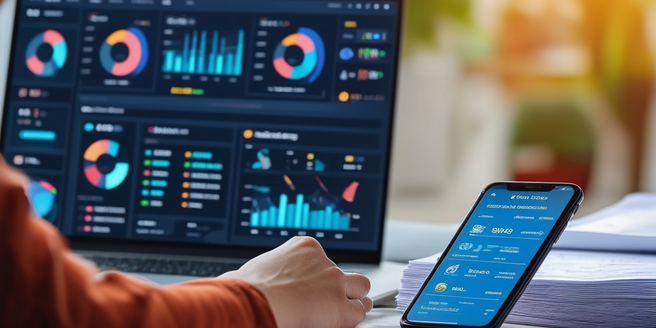Understanding the Importance of Personal Finance Apps
In today’s fast-paced world, managing personal finances efficiently is crucial. Personal finance apps have become essential tools for simplifying financial management. They offer users the ability to monitor expenses, create budgets, and track investments all in one place. These apps cater to a wide range of needs, from basic budgeting for individuals to comprehensive financial planning for families. By providing real-time data, reminders for bill payments, and insights into spending habits, they help users make informed financial decisions. Moreover, the integration of AI and machine learning in some of these apps offers personalized advice and forecasts, enhancing the user experience. In essence, personal finance apps empower users to take control of their financial well-being with convenience and precision.
Top Features to Look for in Finance Apps
When choosing a personal finance app, certain features are crucial for a seamless experience. Budgeting tools are essential, allowing users to set spending limits and track daily expenses. A comprehensive app should also offer synchronization with bank accounts for real-time balance updates and transaction categorization. Security is paramount, so look for apps with encryption and multi-factor authentication. Furthermore, financial goal-setting capabilities provide users with the motivation to achieve their targets, while insights into spending habits can prompt smarter financial choices. Other valuable features include bill payment reminders and investment tracking functionalities. Ultimately, the best finance apps are those that offer a user-friendly interface coupled with robust support to cater to individual financial needs, ensuring users can manage their money efficiently.
Comparing Free vs. Paid Finance Apps
The decision between free and paid finance apps often comes down to the features and functionality offered. Free apps typically provide basic features like expense tracking and budgeting, making them suitable for users with straightforward financial needs. However, they may include ads and have limitations on the number of accounts or transactions tracked. Paid apps, on the other hand, offer more extensive features such as advanced analytics, investment tracking, and ad-free experiences. These apps often provide superior customer support and enhanced security features. Users should consider their financial goals and security needs when choosing between the two options. While free apps can be a great starting point, paid apps often offer a more comprehensive financial management toolset, justifying the investment for many users.
User Reviews and Ratings: Choosing the Right App
When selecting a personal finance app, user reviews and ratings can be invaluable resources. These reviews provide insights into the real-world performance and usability of the app. Look for apps with high ratings and positive reviews regarding customer support, ease of use, and reliability. Users often share their experiences with specific features, highlighting strengths and weaknesses not evident from the app’s description. Additionally, reviews can indicate how responsive developers are to bug fixes and updates. It’s also useful to note any recurring issues mentioned by multiple users, as these could affect your experience. Balancing the app’s features with the feedback from the community can lead to a more informed decision, ensuring you choose a finance app that meets your needs and enhances your financial management.
Integrating Finance Apps with Your Daily Routine
Incorporating personal finance apps into your daily routine can significantly enhance your money management. Start by setting aside a specific time each day, such as during your morning coffee or evening relaxation, to review your finances. Use the app’s tools to track expenses, set budgets, and monitor financial goals regularly. Automate reminders for bill payments through the app to avoid late fees and maintain good credit. Additionally, take advantage of personalized insights and recommendations the app provides to adjust your financial habits accordingly. By consistently using the app, you’ll gain a clearer understanding of your spending patterns and financial standing. Over time, this routine will instill discipline in your financial management, helping you achieve both short-term and long-term financial objectives.
Future Trends in Personal Finance Technology
The evolution of personal finance technology is shaping how we manage our money. One significant trend is the integration of artificial intelligence to offer personalized financial advice and predictive analytics. This allows users to make informed decisions based on their spending habits and financial goals. Another trend is the rise of mobile payment solutions, enabling seamless transactions directly from personal finance apps. As open banking becomes more prevalent, users can expect greater interoperability between different financial services, leading to more comprehensive financial insights. Additionally, blockchain technology is being explored for enhanced security and transparency in transactions. As these technologies advance, personal finance apps will continue to evolve, offering more innovative solutions for financial management, ultimately empowering users to take charge of their financial futures.


